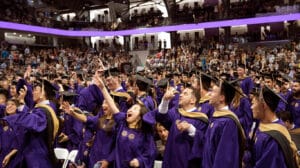McKinsey reportedly receives more than a million applications per year and hires less than 1% of them. The Top 3 consulting firms are among the ten most selective employers in the world and it is notoriously difficult to receive a job offer.
In reality, most of the selection is done at the resume stage where the vast majority of applicants are rejected. Once you’re invited to interview, you have around a one in eight chance of getting the job.
However, these numbers hide very different realities.
Although the top consulting firms claim they will hire anyone who meets their bar, in reality, they do not escape the law of supply and demand. The ratio between the number of candidates and the number of available slots will vary a lot depending on the role, location, recruiting channel, and even the time of the year. And the performance bar required to get an offer will move accordingly.
Key takeaways
- The law of supply and demand applies to consulting firms as well, despite meeting the performance bar some candidates may not receive an offer due to the number of available slots
- Some offices are more popular than others impacting chances of success; the timing of the application can also impact the chances of success
- Specialist roles are less competitive than generalist roles
- Make connections in the office(s) you are applying to understand the best time to apply and roles to apply for
- Invest time in creating your resume to improve your chances of passing the resume screening stage
The office you apply to impacts your chances of success
As a rule of thumb, the generalist consulting roles in the main English-speaking offices are going to be the most popular and therefore selective. This includes New York City, San Francisco, Boston, London, and Singapore. These offices are in attractive locations to live and work and they do a good variety of client work. Plus, a much higher number of people can apply because a lot of people can speak English, whereas local offices in countries such as Germany, Mexico, or Japan have fewer applicants since fewer people can speak the local language.
In addition to the popular English-speaking geographies, the offices in highly populated countries where consulting is seen as a top profession are very competitive too. India and China are great examples of this, where there is a large number of potential applicants and only a small number of roles available.
The timing of your application influences your chances
The number of hires made at each office and firm will vary year to year depending on how quickly the office is growing. The number will also vary within the year depending on how many consultants have already been hired and how close the office is to meet its recruitment target.
If you’re unlucky enough to apply at a time when the office is already very close to its target, you may get rejected despite meeting the bar.
Therefore, in reality, top consulting firms will hire based on targets and do not simply hire everyone who meets the bar. They will do their best to find the best talent available to meet those slots, which means only those who stand out receive an offer.
Some roles are more competitive than others
Finally, specialist roles are typically less competitive than generalist roles. This is because there are fewer people who have the relevant background for a specialist role, are interested in consulting, and have prepared properly enough to pass the challenging case interviews.
If you’re interested in joining a top consulting firm as a specialist expert, make sure to read our article The Difference Between Generalist and Expert Roles at Top Management Consulting Firms.
How to make sure your application is the best it can be
Being smart about when and where you apply is important because these nuances will impact your chances of receiving an offer.
To give yourself the best chance of applying at the right time and to the right role, we recommend finding the demand for consultants in the office(s) you’re applying to, speaking with insiders to find the best time to apply, and understanding which offices and roles you should apply to.
Second, given that the resume screening is where the vast majority of candidates are rejected, it’s important to invest time in creating the best resume possible so you don’t land on the wrong pile.
To make sure your resume doesn’t let you down, check out our Free Resume Courses.







